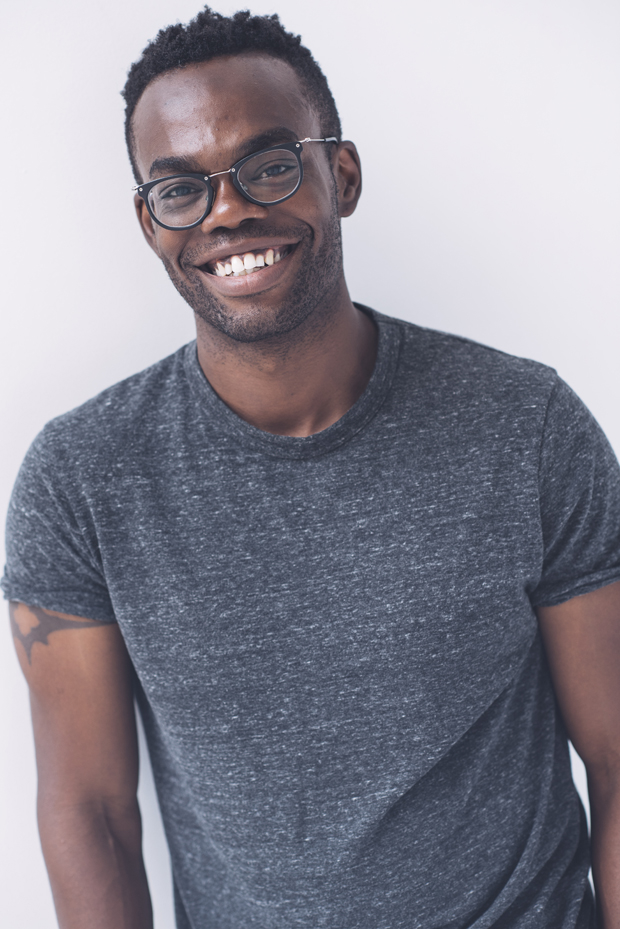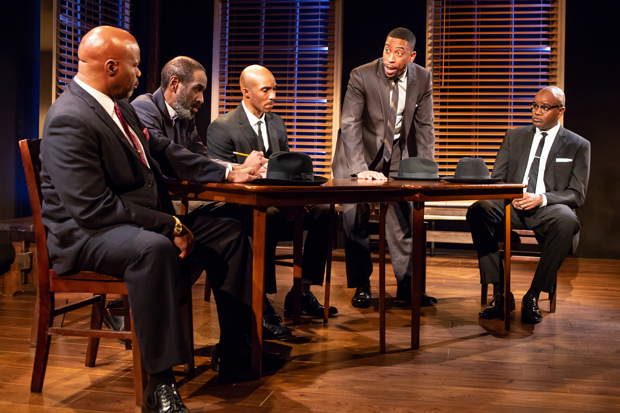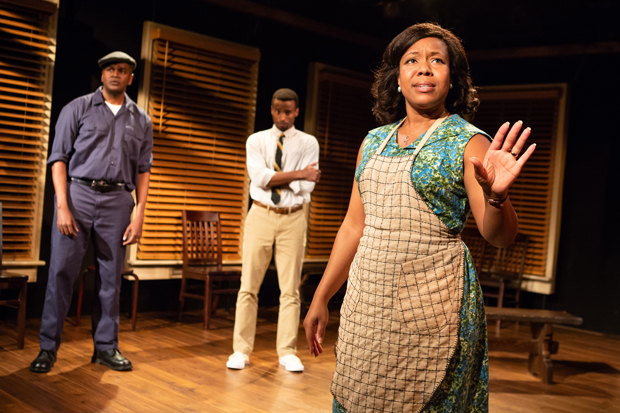William Jackson Harper on Taking the Sepia Tones out of Civil Rights in Travisville
The star of NBC’s ”The Good Place” makes his playwriting debut at Ensemble Studio Theatre.

(© Jackie Abbott)
"I feel like whenever I see any sort of civil rights play or civil rights movie, it's like there is a sort of sepia-toned hope at the end of it that I don't necessarily feel," said William Jackson Harper, about the impetus for writing his new play Travisville, now having its world premiere at Ensemble Studio Theatre.
Inspired by the unique racial politics in 1960s Dallas, where Harper grew up, Travisville follows a group of political and religious leaders — led by Alden Hearst, the retiring elder of New Mount Olives Pentecostal — who are forced to reckon with the measured approach to civil rights they've championed within their community. And instead of sepia tones, Harper has worked to create a world of nuanced characters, all of whom are trying, and often failing, to do the right thing. "It was actually a lot easier to write shaded people than it was to write characters who are just angry and antagonistic for the sake of it."
He continued, "I'm angry and I'm worried and I kind of wanted to try to create something that dialogues with those emotions that I have rather than giving us something that feels like where we should be. I wanted to write something that feels more like the ancestor to the world we actually have than the one that we wish we had."
During the development of Travisville, Harper researched the racial politics of civil-rights-era Dallas, but also found that his work as an actor (Harper is best known as Chidi on NBC's The Good Place) and even his own upbringing ended up influencing his writing.
"I know my point of view and that's the only thing I can really render with any sort of nuance," said Harper. "So I thought, 'Let me just do it.' "

(© Jeremy Daniel)
What was your research process for this show like?
This story is very much inspired by racial politics in Dallas. Because really there wasn't a whole lot that went on in Dallas and that sort of always struck me as odd. And then there was this book by this author Jim Shoots called The Accommodation, which was an in-depth exploration of racial politics in Dallas, and I was really struck by the voices of some of these ministers and civic leaders and business leaders in town and how it seemed there was an agreed-upon, measured progress that was allowed. So that got my brain working and made me want to unpack some of this. It felt important for me to express some of the feelings I have right now and get those out rather than just write a straight-up historical piece.
What's interesting is that there is no outright villain in the story.
I had every intention of certain characters being villains, honestly. As I got through the first draft though, it sort of happened that that was the less and less interesting choice.
It became very simple to me that Hearst would be a character who is committed to resisting any sort of violence in his community whatsoever. And if that means that he has to do some things that people are going to really hate and that he's going to be called certain names because of that, then that's OK, because at least people are alive at the end of the day and no one's hurt.
A lot of movements really started from the church, and in this story it's rooted in a desire to keep things from getting violent and to keep people safe. We can push on certain things, but other things we really need to take a back seat and maintain the status quo a little bit so we don't have a riot.
The women in this play are given a lot of agency. Was that something you were conscious of when you were writing?
I grew up in a household where gender roles were not so clearly defined, because my dad died when I was relatively young, so my mom raised my sister and me. So that feels like it's just sort of what the world is to me… I'm coming in contact with some of these things as I get older, and I'm seeing them, but that's just not my life, that's not my world.
What do you hope audiences come away with after seeing Travisville?
In the end I just want people to think, "You know, we didn't finish the work. And we have a long way to go." It's not like 1972 came and everything was fine. That's not the way it was, and I want people to actually think about that.

(© Jeremy Daniel)








